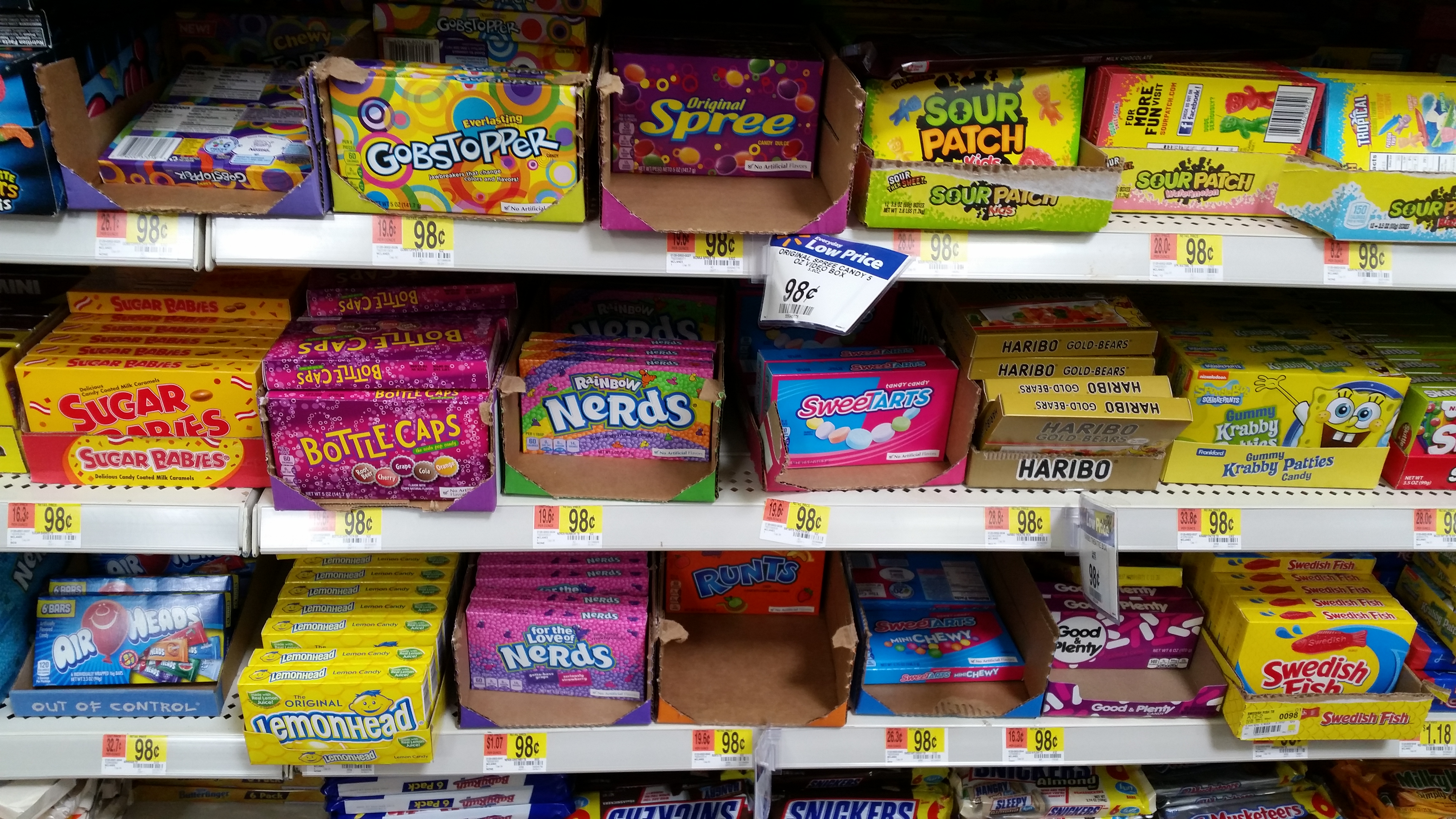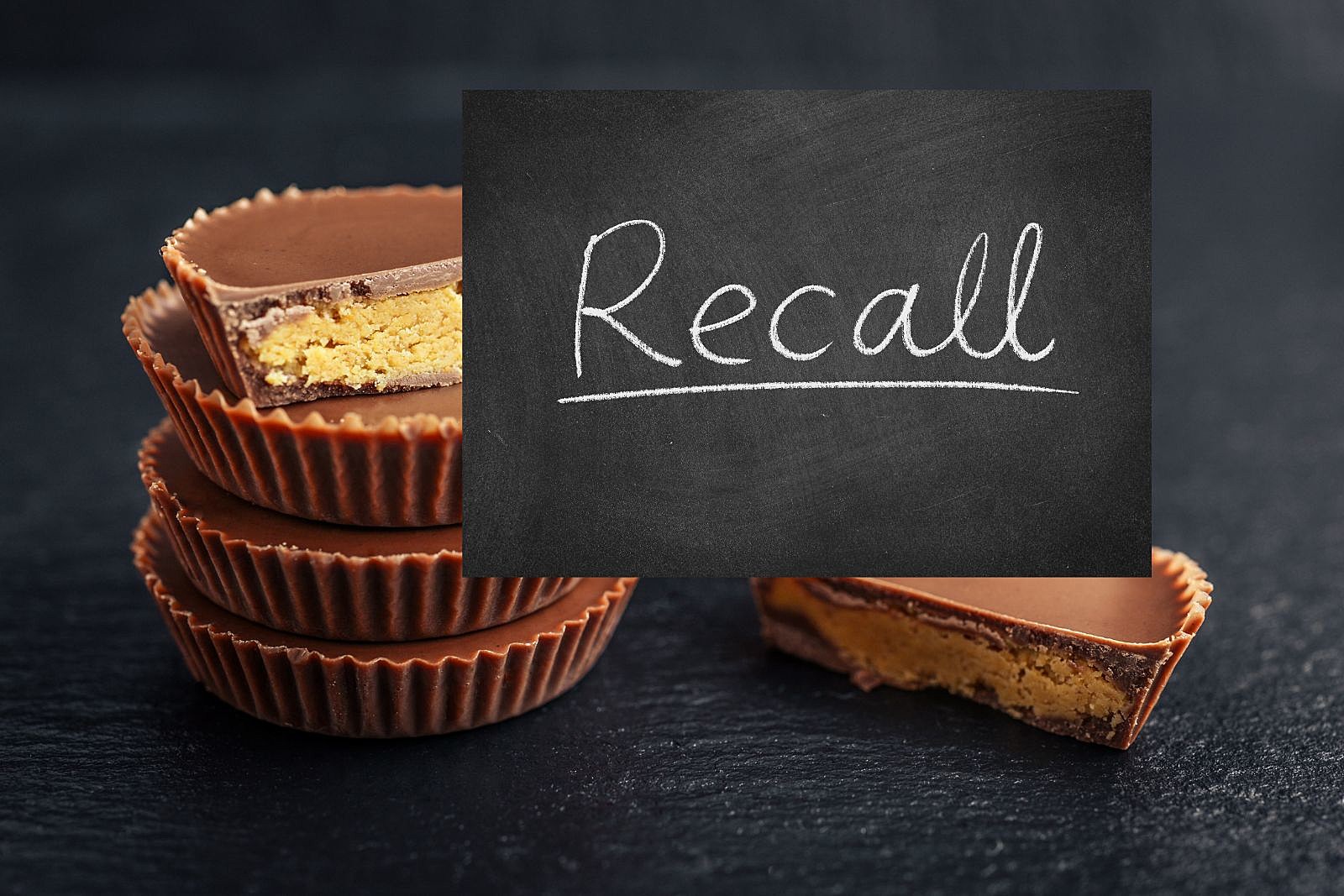Walmart Candy Recalls

Walmart, being a global retail giant, has experienced several candy recalls over the years. These recalls are a serious matter, impacting not only consumers’ health but also Walmart’s reputation and financial standing.
History of Walmart Candy Recalls
Walmart has faced numerous candy recalls due to various reasons, including contamination, mislabeling, and undeclared allergens. These incidents have led to product removal from shelves, consumer warnings, and potential health risks.
- In 2015, Walmart recalled several types of chocolate candy due to potential salmonella contamination. The recall affected over 100,000 units and resulted in widespread media attention.
- In 2018, a recall was issued for a batch of gummy candies due to the presence of undeclared peanuts, posing a serious risk to individuals with peanut allergies.
- In 2020, a recall was announced for a line of hard candies due to potential choking hazards for young children.
These are just a few examples of the numerous candy recalls Walmart has faced, highlighting the importance of product safety and consumer protection.
Types of Candy Products Involved in Recalls
A wide range of candy products have been subject to recalls, including:
- Chocolate candies
- Gummy candies
- Hard candies
- Lollipops
- Chewing gum
The types of candy involved in recalls often depend on the specific reason for the recall. For instance, chocolate candies are prone to salmonella contamination, while gummy candies can contain undeclared allergens.
Health Risks Associated with Consuming Recalled Candy
Consuming recalled candy can pose significant health risks, including:
- Food poisoning: Contaminated candy can lead to food poisoning, causing symptoms such as nausea, vomiting, diarrhea, and abdominal cramps.
- Allergic reactions: Candy containing undeclared allergens can trigger severe allergic reactions, potentially leading to anaphylaxis in individuals with allergies.
- Choking hazards: Small candies, especially hard candies, can pose choking hazards, particularly for young children.
It is crucial to avoid consuming recalled candy to prevent these health risks.
Financial and Reputational Impact of Recalls on Walmart
Candy recalls have a significant impact on Walmart’s financial and reputational standing.
- Financial loss: Recalls involve product removal, refunds, and legal expenses, resulting in substantial financial losses for Walmart.
- Reputational damage: Recalls can damage Walmart’s reputation, leading to decreased consumer trust and potential loss of sales.
- Legal liabilities: Walmart can face legal liabilities from consumers who experience health issues after consuming recalled candy.
Walmart strives to minimize the impact of recalls by implementing stringent quality control measures and promptly addressing any issues that arise.
Regulatory Framework and Safety Standards: Walmart Recalls Candy

Ensuring the safety of food products is paramount, and candy, being a popular treat, is subject to strict regulations in the United States. These regulations aim to protect consumers from harmful contaminants and ensure the quality of the products they purchase.
Agencies Responsible for Candy Safety
The Food and Drug Administration (FDA) plays a crucial role in overseeing the safety of candy products in the United States. The FDA sets standards for the production, processing, and labeling of food products, including candy. It also enforces these standards through inspections and investigations.
In addition to the FDA, the Centers for Disease Control and Prevention (CDC) is involved in investigating foodborne illnesses, including those associated with candy. The CDC provides guidance on preventing foodborne illnesses and assists in identifying the source of outbreaks.
Safety Standards and Regulations
The FDA establishes specific safety standards for candy, including limits on the levels of contaminants, such as lead, arsenic, and mercury. These standards are based on scientific evidence and aim to ensure that candy is safe for consumption.
The FDA also has regulations regarding the labeling of candy products, requiring manufacturers to provide accurate information about ingredients, allergens, and nutritional content. These regulations help consumers make informed choices about the products they buy.
Key Regulatory Requirements for Candy Manufacturers and Distributors
The following table Artikels the key regulatory requirements for candy manufacturers and distributors:
| Requirement | Description |
|---|---|
| Good Manufacturing Practices (GMPs) | Candy manufacturers must adhere to GMPs, which are a set of standards that ensure the production of safe and high-quality products. |
| Hazard Analysis and Critical Control Points (HACCP) | Manufacturers must implement HACCP plans to identify and control potential hazards throughout the production process. |
| Food Safety Modernization Act (FSMA) | The FSMA requires manufacturers to implement preventive controls to mitigate food safety risks. |
| Labeling Requirements | Candy manufacturers must provide accurate and complete labeling information, including ingredients, allergens, and nutritional content. |
| Recall Procedures | Manufacturers must have a system in place for recalling products that have been found to be unsafe. |
Consumer Awareness and Response

Consumer awareness plays a critical role in preventing the consumption of recalled candy. When consumers are informed about potential hazards associated with specific products, they can make informed decisions about their safety and well-being.
Communication of Recall Information
Walmart employs various methods to communicate recall information to consumers. These methods include:
- Website Announcements: Walmart posts recall notices on its website, providing detailed information about the affected products, potential risks, and instructions for returning the items.
- Email Notifications: Registered Walmart customers receive email alerts about recalls that may affect products they have purchased or may be interested in.
- Social Media Updates: Walmart utilizes its social media platforms, such as Facebook, Twitter, and Instagram, to disseminate recall information to a wider audience.
- In-Store Signage: Walmart places prominent signage in its stores, alerting customers to active recalls and providing information about the return process.
- Customer Service: Walmart’s customer service representatives are trained to answer consumer inquiries about recalls and provide guidance on returning affected products.
The effectiveness of these methods varies depending on factors such as consumer engagement with Walmart’s communication channels and the urgency of the recall.
Consumer Reactions to Candy Recalls
Consumer reactions to candy recalls can range from cautious to apprehensive. Some consumers may be quick to return recalled products, while others may hesitate or even ignore the recall notice.
Factors influencing consumer response include:
- Trust in Walmart: Consumers who trust Walmart are more likely to believe the recall information and take action.
- Severity of the Risk: Recalls involving serious health hazards are more likely to elicit a strong consumer response.
- Convenience of Returning Products: Consumers may be less likely to return products if the process is inconvenient or time-consuming.
- Awareness of the Recall: Consumers who are unaware of a recall are less likely to take action.
Campaign to Increase Consumer Awareness, Walmart recalls candy
A hypothetical campaign to increase consumer awareness about candy recalls and their importance could involve the following strategies:
- Public Service Announcements (PSAs): Walmart could partner with media outlets to air PSAs that highlight the importance of checking for recalls and the potential consequences of consuming recalled candy.
- Social Media Campaigns: Walmart could launch social media campaigns using engaging visuals and interactive content to educate consumers about recall procedures and encourage them to stay informed.
- In-Store Promotions: Walmart could offer incentives to consumers who return recalled candy, such as discounts on future purchases or special promotions.
- Community Outreach: Walmart could partner with local organizations to host community events and workshops focused on food safety and recall awareness.
Walmart recalls candy – Eh, Walmart ngeluarin recall buat permen lagi? Udah kayak lagi ngadain diskonan aja nih. Tapi, ngomongin diskonan, inget kejadian helikopter nyungsep ke hotel Hilton itu? Kayak diskonan harga hotel deh, langsung jatoh. Ya ampun, balik lagi ke permen, ntar malah jadi ngomongin helikopter lagi.
Eh, Walmart ngeluarin recall buat permen lagi? Udah kayak lagi ngurusin anak kecil aja, ribet banget. Tapi inget, urusan permen mah sepele, mendingan kita liatin nih, Iran sama Israel lagi berantem , itu baru seru! Ya, balik lagi ke permen, mendingan makan yang aman aja, daripada sakit perut.
